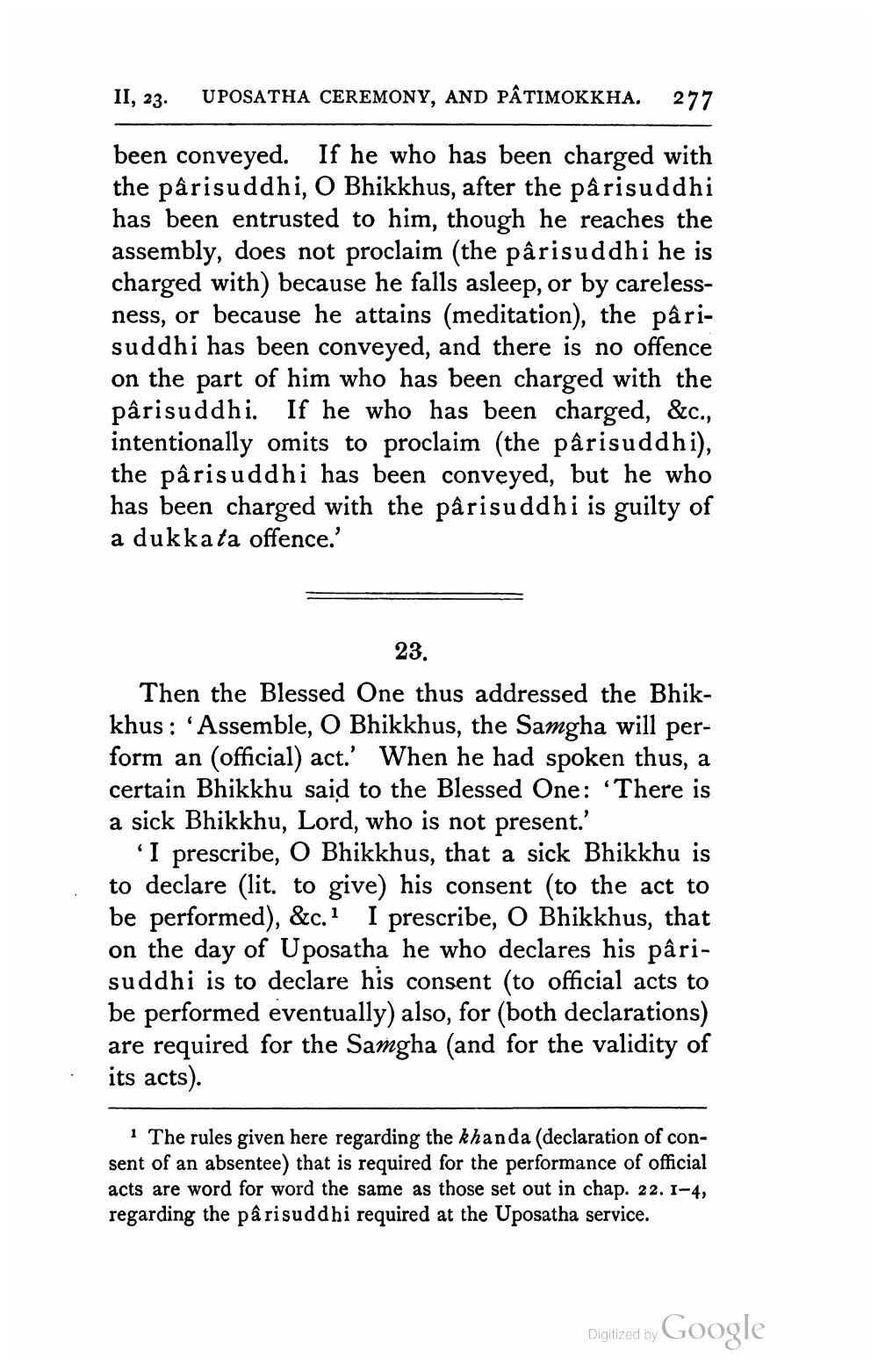________________
II, 23. UPOSATHA CEREMONY, AND PATIMOKKHA. 277
been conveyed. If he who has been charged with the pârisuddhi, O Bhikkhus, after the pârisuddhi has been entrusted to him, though he reaches the assembly, does not proclaim (the pârisuddhi he is charged with) because he falls asleep, or by carelessness, or because he attains (meditation), the pârisuddhi has been conveyed, and there is no offence on the part of him who has been charged with the pârisuddhi. If he who has been charged, &c., intentionally omits to proclaim (the pârisuddhi), the pârisuddhi has been conveyed, but he who has been charged with the pârisuddhi is guilty of a dukkata offence.'
23.
Then the Blessed One thus addressed the Bhikkhus: Assemble, Bhikkhus, the Samgha will perform an (official) act.' When he had spoken thus, a certain Bhikkhu said to the Blessed One: 'There is a sick Bhikkhu, Lord, who is not present.'
'I prescribe, O Bhikkhus, that a sick Bhikkhu is to declare (lit. to give) his consent (to the act to be performed), &c.1 I prescribe, O Bhikkhus, that on the day of Uposatha he who declares his pârisuddhi is to declare his consent (to official acts to be performed eventually) also, for (both declarations) are required for the Samgha (and for the validity of its acts).
1 The rules given here regarding the khanda (declaration of consent of an absentee) that is required for the performance of official acts are word for word the same as those set out in chap. 22. 1-4, regarding the pârisuddhi required at the Uposatha service.
Digitized by
Google




